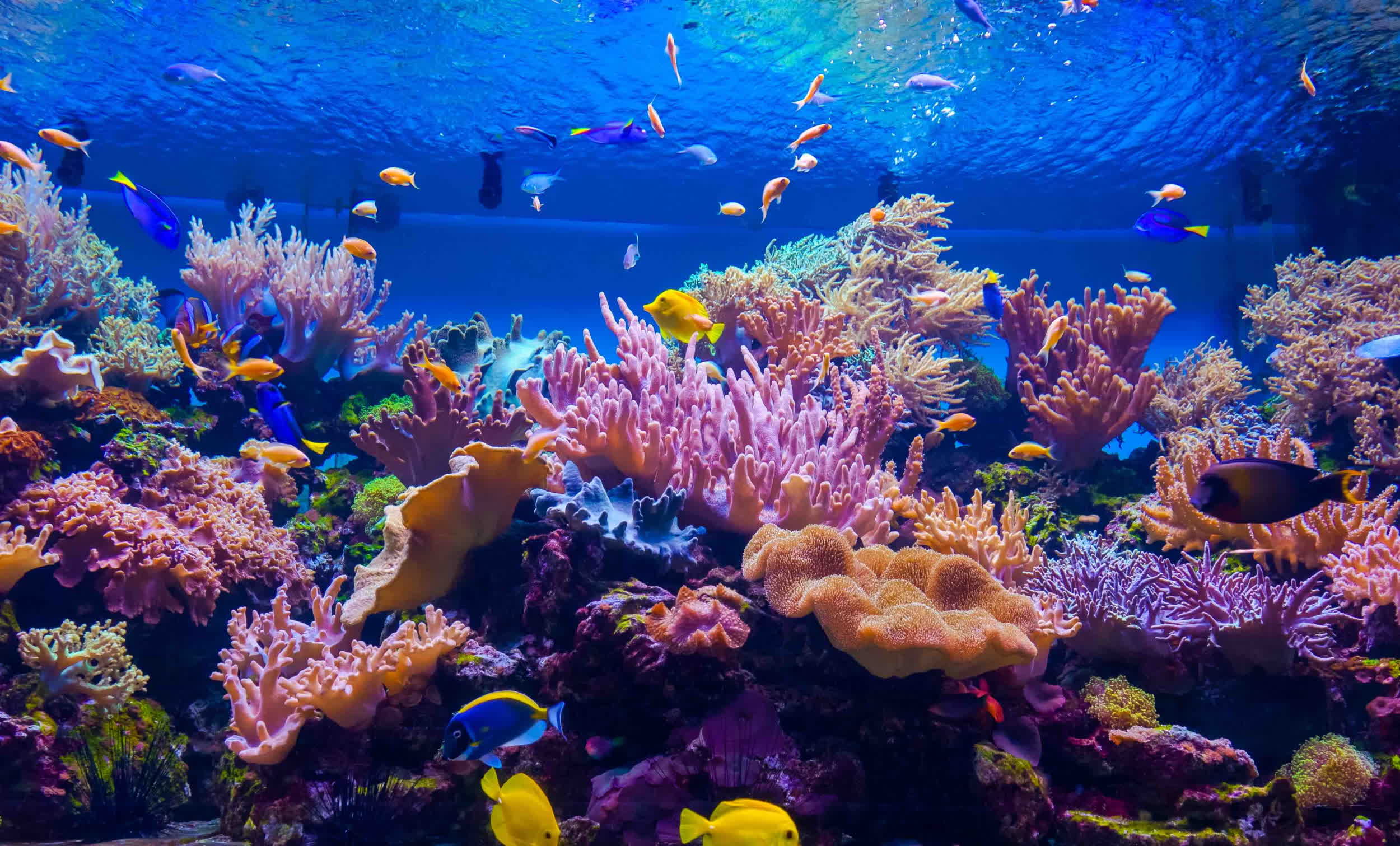In context: Coral reefs are underwater ecosystems built by colonies of coral polyps held together by calcium carbonate. They are rich in biodiversity and are sometimes referred to as the "rainforests of the sea." Despite occupying less than 0.1 percent of the global ocean area, reefs host at least a quarter of all known marine species.

Researchers aim to stimulate new growth in damaged coral reefs by "bathing" them in sound recordings taken from reefs teeming with life. A recently published study describes what could be a promising new method to restore healthy conditions to coral reefs, offering scientists the opportunity to save and repopulate one of the most vital marine ecosystems.
It is estimated that half of the world's coral reef habitats have disappeared since 1950. A lethal combination of global warming, overfishing, pollution, and disease outbreaks has contributed to this dire situation. Researchers are now trying to restore the damaged reefs by relocating artificially-raised coral colonies capable of withstanding today's warming ocean waters.
NadeÌÂge Aoki, a researcher at the Woods Hole Oceanographic Institution in Massachusetts, is proposing a different approach to reef repopulation. Aoki and her colleagues built on previous research studies concerning coral larvae swimming towards reef soundscapes and developed their own sound contraption to test the new method.
The researchers deployed a system of underwater speakers off the coasts of the US Virgin Islands, in the Caribbean Sea, initiating an experiment involving three different coral reefs. They played sound effects simulating busy reef activity at only one reef, to test how the coral larvae they released in the seawater would respond.
After broadcasting the sounds of a healthy reef for three nights, Aoki and her colleagues discovered that coral larvae were, on average, 1.7 times more likely to settle at the site where the sound was played. Settlement rates decreased away from the underwater speaker system, indicating that the broadcast was indeed responsible for the larvae's increased activity levels.
Aoki stated that the study yielded interesting and promising results, but more research is needed to determine if other coral species can benefit from healthy reef soundscapes, and how the new settlements develop over time. The ultimate goal, Aoki emphasized, must be to ensure the survival of the new coral colonies.
Marine biologist Steve Simpson noted that he has been using reef sounds to attract fish larvae to coral reefs for 20 years. If we can preserve the dying coral reef ecosystem, Simpson believes, "we can save anything."